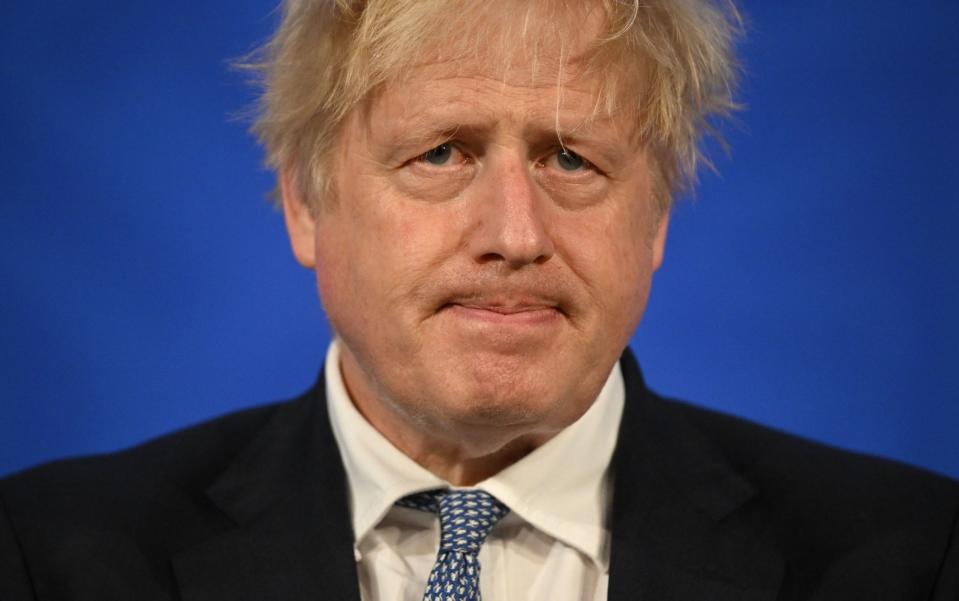Four million high earners suffer £1k a month hit under Tories

Four million workers would be £1,000 a month better off had Boris Johnson’s pledge to cut taxes for higher earners been fulfilled, figures have revealed.
Raising the higher-rate tax threshold to £80,000 was one of the former prime minister’s key leadership campaign promises.
Before winning the leadership contest, Mr Johnson promised to deliver tax cuts that would drive economic growth.
Writing in The Telegraph in 2019, he said: “We should be raising thresholds of income tax – so that we help the huge numbers that have been captured in the higher rate by fiscal drag.”
The move would have lifted almost four million out of the 40pc tax rate, data obtained from HM Revenue and Customs in a freedom of information request showed.
It would have saved taxpayers £48.4bn in 2022-23 – or £12,000 on average each per year.
But by the end of his term, Britain’s tax burden was climbing rapidly and is now expected to hit 37pc of GDP by 2028-29, higher than before the pandemic.
This is because of the Government’s decision in 2021 to abandon the usual uprating of tax thresholds in line with inflation.
The freeze on tax bands was initially supposed to last four years, but Chancellor Jeremy Hunt extended the policy by an extra two years in 2022.
It means three million workers will become higher rate taxpayers by 2028-29, according to the Office for Budget Responsibility, due to a phenomenon called fiscal drag.
The personal allowance – the amount someone can earn tax-free – has been stuck at £12,570 and the higher rate threshold at £50,270.
In addition, the Government has lowered the additional rate threshold from £150,000 to £125,140, dragging hundreds of thousands of workers into the 45pc bracket.
By 2028-29, one million additional workers will be paying 45pc, according to official forecasts.
Chris Etherington, of RSM, the accountancy firm which obtained the figures, said: “Increasing the higher rate income tax threshold to £80,000 was one of Boris Johnson’s key commitments in his campaign to become leader of the Conservative party in 2019 but the idea was soon abandoned once the leadership contest was settled.
“Given the scale of the potential cost involved, it is not difficult to see why Boris Johnson may have been persuaded to move away from the idea. The policy may have its supporters but the chancellor is unlikely to be able to finance such a move in the short term.”
Chancellor Jeremy Hunt unveiled two cuts to National Insurance (NI) in November and March.
The Government said that it was “rewarding hard work” by reducing NI rates, saving £450 a year for a typical worker on £35,000.
However, workers will still be paying more despite the cuts due to “stealth taxes”. Middle earners have been among the worst-hit, with anyone earning over £60,000 paying £612 more tax by 2027-28, according to the Institute for Fiscal Studies, a think tank. This is with NI cuts factored in.
It was rumoured that Mr Hunt had wanted to cut income tax but opted to reduce NI instead as a cheaper pre-election giveaway.
The Chancellor may be tempted to announce further tax cuts before the general election, which must be held before January 2025.
One of the options he is reportedly considering is a stamp duty cut that would see the threshold raised from £250,000 to £300,000.
However, analysts have said that higher-than-expected government borrowing has cast the possibility of tax cuts into doubt.
Government borrowing was £120.7bn in the year to March, the Office for National Statistics said – £6.6bn more than the Office for Budget Responsibility, the official forecaster, had estimated.
The Government was approached for comment.

 Yahoo Finance
Yahoo Finance 